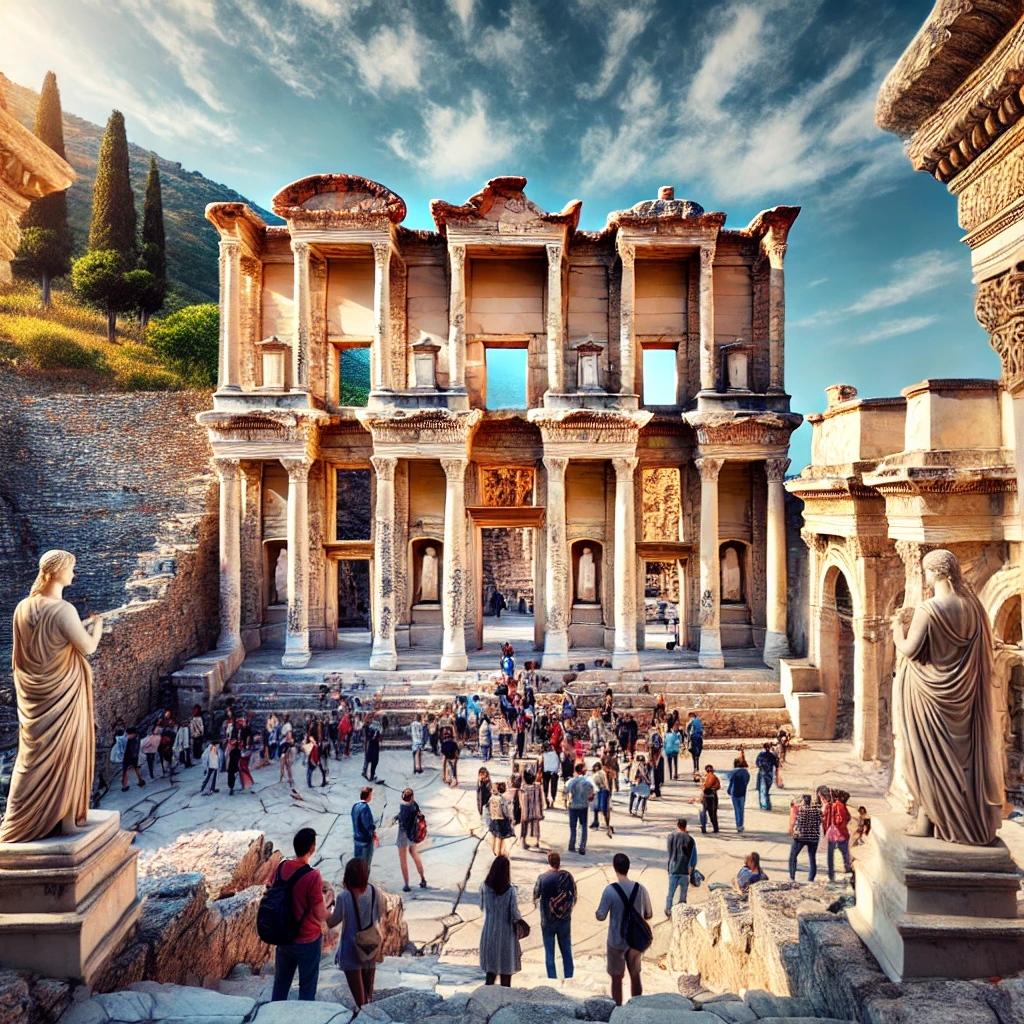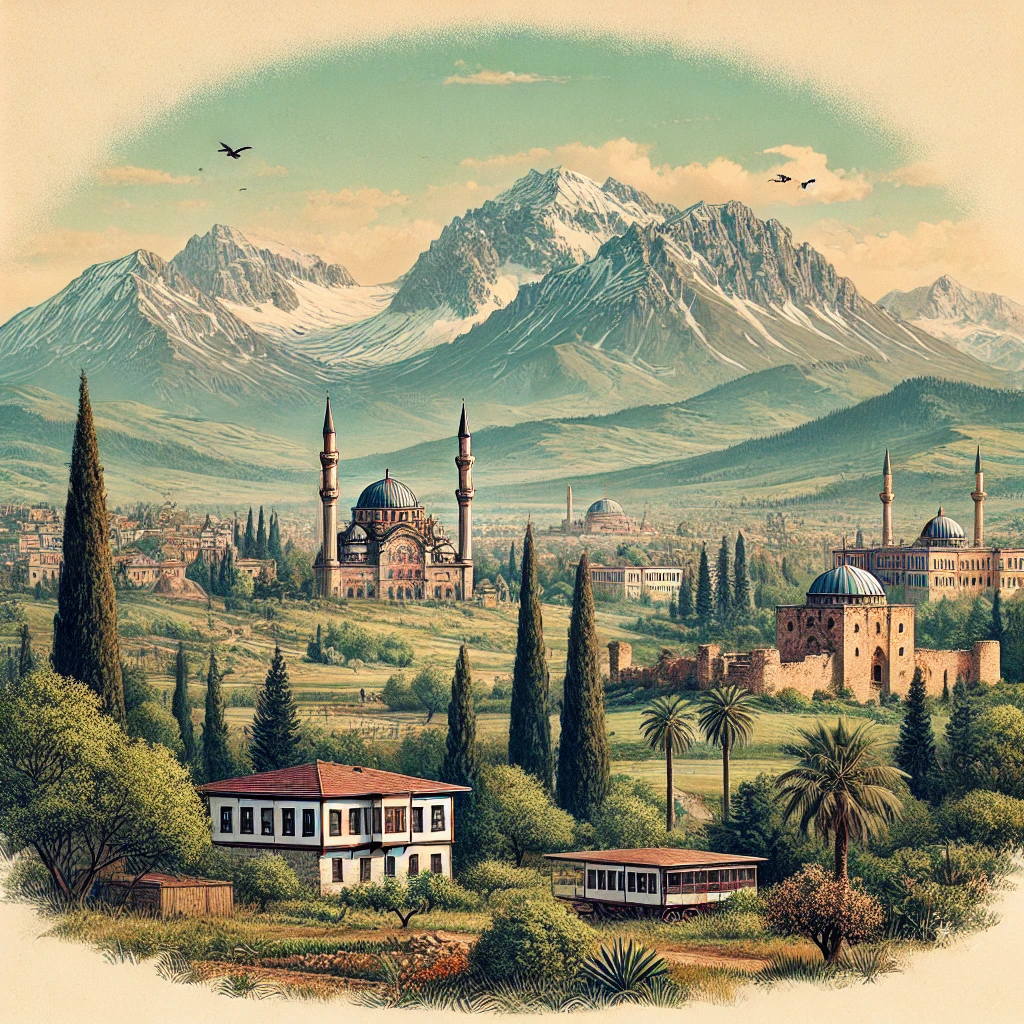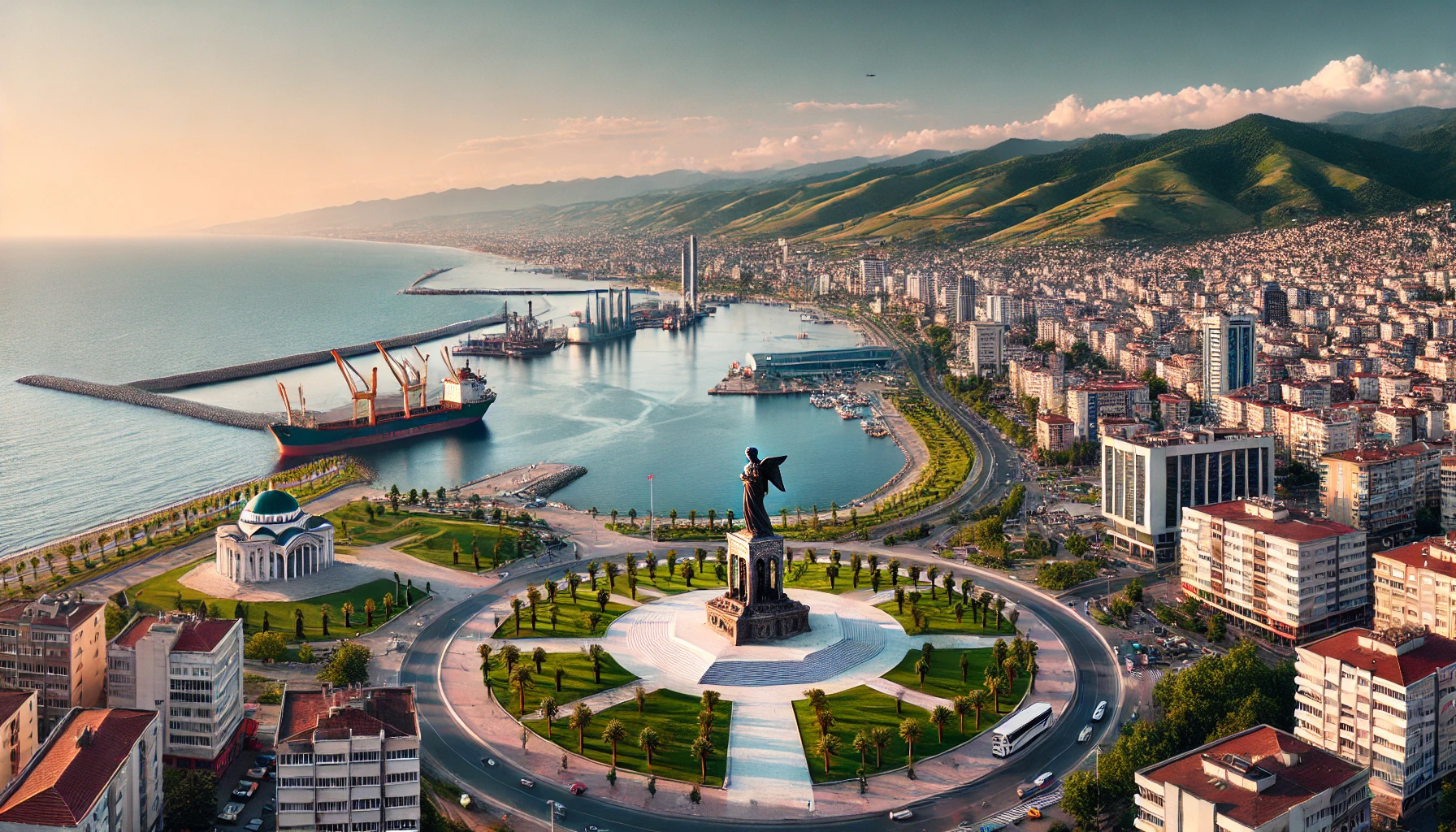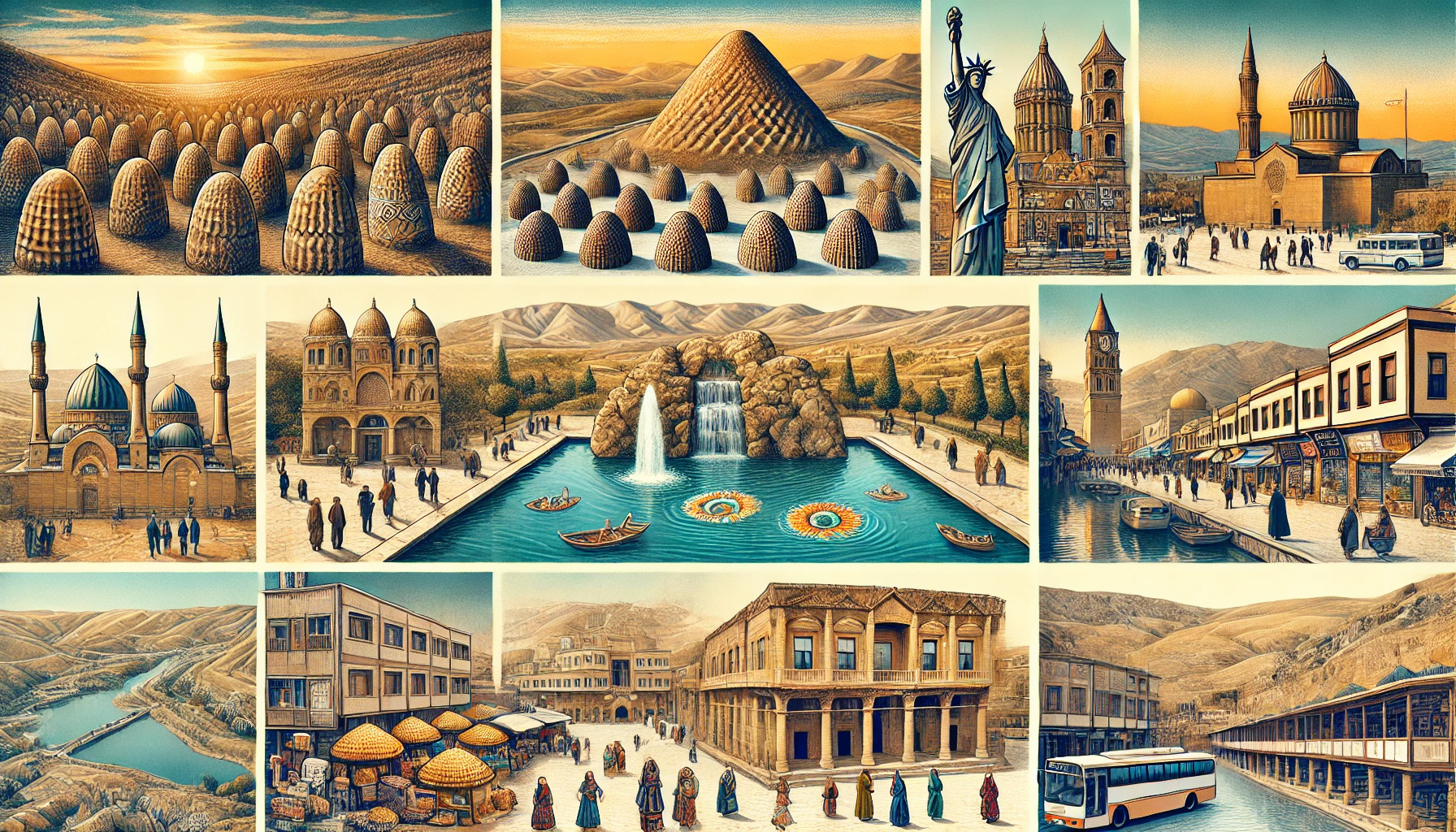Archaeological Tourism in Turkey
Turkey, a land where East meets West, is a treasure trove of ancient civilizations and rich history. From the ruins of ancient cities to the remnants of once-glorious empires, Turkey offers an unparalleled journey through time for archaeology enthusiasts. Archaeological tourism in Turkey is not just about exploring ancient ruins; it’s about immersing oneself in the stories, cultures, and achievements of the past. This article delves into the wonders of archaeological tourism in Turkey, highlighting the top destinations and what makes them so captivating.
The Allure of Archaeological Tourism
What is Archaeological Tourism?
Archaeological tourism involves traveling to historical sites with the intent of exploring and learning about ancient civilizations and their artifacts. This form of tourism combines education with adventure, offering a deep dive into human history.
Why Turkey?
Turkey’s unique geographical location has made it a crossroads of civilizations for thousands of years. The country is home to some of the most significant archaeological sites in the world, from ancient Greek and Roman ruins to Byzantine and Ottoman treasures. The diversity and richness of Turkey’s archaeological heritage make it an ideal destination for history buffs and curious travelers alike.
Top Archaeological Sites in Turkey
Ephesus: The Ancient Metropolis
Overview
Ephesus, located near the modern town of Selçuk, is one of the most well-preserved ancient cities in the world. Once a bustling metropolis, Ephesus was a major center of trade and culture in the ancient world.
Must-See Attractions
- Library of Celsus: An iconic symbol of Ephesus, this ancient library is a marvel of Roman engineering and architecture.
- The Great Theatre: Capable of seating 25,000 spectators, this grand theatre was used for drama performances and gladiatorial contests.
- Temple of Artemis: One of the Seven Wonders of the Ancient World, the Temple of Artemis was a magnificent structure dedicated to the goddess Artemis.
Troy: The Legendary City
Overview
Troy, made famous by Homer’s epic poems, is a UNESCO World Heritage site. Located in northwestern Turkey, the city has a rich history that spans several millennia.
Must-See Attractions
- The Trojan Horse: A modern replica of the wooden horse used by the Greeks to enter Troy, it stands as a reminder of the city’s legendary past.
- The Walls of Troy: These ancient fortifications offer a glimpse into the city’s formidable defenses.
- Schliemann’s Trench: The excavation site where Heinrich Schliemann discovered the remains of ancient Troy.
Göbekli Tepe: The World’s Oldest Temple
Overview
Göbekli Tepe, located in southeastern Turkey, is considered the world’s oldest temple complex. Dating back to around 9600 BCE, this site has revolutionized our understanding of early human civilization.
Must-See Attractions
- T-shaped Pillars: These massive stone pillars are adorned with intricate carvings of animals and symbols.
- Circular Enclosures: The site consists of several circular enclosures, each containing multiple pillars.
- Visitor Center: Learn about the significance of Göbekli Tepe through informative exhibits and displays.
Cappadocia: Land of Fairy Chimneys
Overview
Cappadocia, with its unique landscape of fairy chimneys and cave dwellings, offers a fascinating blend of natural beauty and ancient history. The region is known for its rock-cut churches and underground cities.
Must-See Attractions
- Göreme Open-Air Museum: This UNESCO World Heritage site features rock-cut churches adorned with stunning frescoes.
- Derinkuyu Underground City: An extensive subterranean city that once housed thousands of people.
- Uchisar Castle: A natural rock formation that served as a fortress and offers panoramic views of the region.
Hierapolis and Pamukkale: A Thermal Paradise
Overview
Hierapolis, an ancient city built on top of the stunning travertine terraces of Pamukkale, offers a unique combination of natural and archaeological wonders. This UNESCO World Heritage site was a prominent spa town in the Roman Empire.
Must-See Attractions
- The Travertine Terraces: These white calcium formations are filled with thermal waters and create a surreal landscape.
- Hierapolis Theatre: A well-preserved Roman theatre that offers a glimpse into ancient entertainment.
- Necropolis: One of the largest and best-preserved ancient cemeteries in Turkey.
Tips for Archaeological Tourists
Planning Your Visit
When planning your archaeological tour in Turkey, consider the best times to visit. Spring (April to June) and autumn (September to November) offer mild weather, making it ideal for exploring outdoor sites. It’s also important to allocate enough time for each site to fully appreciate its history and significance.
Guided Tours
Hiring a knowledgeable guide can greatly enhance your experience. Guides can provide in-depth information, historical context, and fascinating stories about the sites. Many archaeological sites in Turkey offer guided tours in multiple languages.
Respect the Sites
While exploring ancient ruins, it’s crucial to respect the sites. Avoid touching or climbing on the structures, and follow all guidelines and instructions provided by site authorities. Preserving these historical treasures is essential for future generations to enjoy.
The Impact of Archaeological Tourism
Cultural Preservation
Archaeological tourism plays a significant role in preserving cultural heritage. The revenue generated from tourism can be used to maintain and restore ancient sites, ensuring they remain intact for future generations.
Education and Awareness
Tourism helps raise awareness about the importance of archaeological sites and the need to protect them. Visitors gain a deeper understanding of human history and the achievements of past civilizations.
Economic Benefits
Archaeological tourism provides economic benefits to local communities. It creates jobs, supports local businesses, and stimulates the economy. By visiting these sites, tourists contribute to the well-being of the communities that preserve and share their cultural heritage.
Unique Experiences in Turkish Archaeology
Participating in Excavations
For those seeking a hands-on experience, some archaeological sites in Turkey offer opportunities to participate in excavations. These programs allow participants to work alongside professional archaeologists, gaining firsthand experience in uncovering ancient artifacts.
Archaeological Museums
Turkey boasts several world-class archaeological museums that house extensive collections of artifacts. The Museum of Anatolian Civilizations in Ankara and the Istanbul Archaeological Museums are must-visit destinations for archaeology enthusiasts.
Cultural Festivals
Attending cultural festivals can enhance your archaeological tour. Events such as the Ephesus Festival of Culture and Art celebrate the rich heritage of Turkey through music, dance, and performances set against the backdrop of ancient ruins.
Archaeological tourism in Turkey offers an incredible journey through time, allowing travelers to explore the remnants of ancient civilizations and uncover the stories of the past. From the majestic ruins of Ephesus to the enigmatic pillars of Göbekli Tepe, Turkey’s archaeological sites provide a unique and enriching experience. By respecting and preserving these historical treasures, tourists can ensure that the legacy of these ancient cultures continues to inspire and educate future generations. Plan your archaeological adventure in Turkey and immerse yourself in the fascinating world of ancient history.
Latest Update: Jul 22, 2024
Your Content Goes Here
TAGS: ancient ruins Turkey, archaeological tourism Turkey, Cappadocia caves, cultural heritage Turkey, Ephesus tourism, Göbekli Tepe history, Hierapolis Pamukkale, history travel Turkey, Troy archaeological site, Turkish archaeological sites
A brief summary of the key points in this article.
















